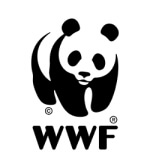JUNE 26. CATANDUANES, Philippines – The Sustainable Tuna Project 2 (STP 2), through its project partner, Partido State University (PSU), presented the alpha version of CATCHFISH in the 2nd Lagonoy Gulf Integrated Fisheries and Aquatic Resources Management Council (IFARMC) meeting in Virac.
CATCHFISH is a collaborative information and communication technology (ICT) tool designed to manage fishing data. It includes functions that record and organize information on boats, municipalities, and fish catches among many others.
By centralizing key information, CATCHFISH is able to streamline fisheries management, allowing stakeholders to access comprehensive data across various municipalities through a single online portal.
“One concern previously raised by the Bureau of Fisheries and Aquatic Resources (BFAR) was the challenge of distributing boats and fishing gear due to a lack of accurate data,” Study 1 Team Leader Nicolas Pura recalls. “With a database like CATCHFISH, stakeholders can simply select the data they need, and it will be readily available for them to use”, he added.
The CATCHFISH project formally began in July 2023 and since then, has continuously been developed to address the various challenges faced by its stakeholders.
Through numerous consultations with the fishing communities and LGUs involved, Pura’s team was able to create a product that meets data protection standards and addresses fishing realities on the ground.
“One concern that the fishers have is the lack of fairness in the distribution of government aid,” Pura shared, pertaining to the suspicious rise of claimants presenting themselves as registered fishermen during calamities in order to get government aid. Such occurrence, according to him, lowers the fishing community’s interest for fishing compliance as it eliminates the advantage fishing registration offers.
Fishers’ registration and licensing is mandated by The Fisheries Code of 1998 or Republic Act 8550. Along with Executive Order 305 that mandates the licensing of fishing vessels, it aims to better the country’s fisheries management system.
Dwindling appreciation of these regulations signals poor compliance which can eventually lead to the poor collection of data used in fisheries management. Without data that can help LGUs manage fish stocks and fishing activities better, it becomes challenging to implement effective conservation measures and ensure sustainable fishing practices.
“Computerization (of data) isn’t for the benefit of today, it is for the benefit of tomorrow–so that you can come back to the set of information for the days to come,” Pura emphasized. With the presence of a database like CATCHFISH, stakeholders are able to input data straight from the ground. They are able to document information real-time and subsequently provide other stakeholders readily available records that can help facilitate easier decision-making for fisheries management.
The idea of forming a consortium to manage its ownership was discussed and is currently being explored. Both the STP 2 and PSU teams aim to launch CATCHFISH by the third or fourth quarter of 2024, ensuring that the Lagonoy Gulf fishing community can benefit from it even after the program concludes in December.




